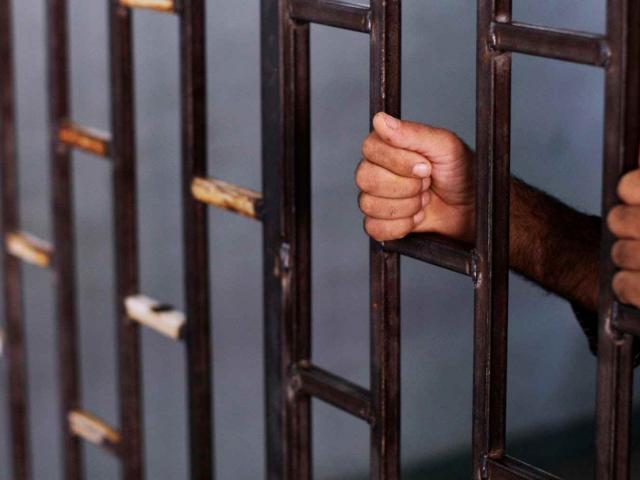
The New Emergency Law: Endless Pretrial Detention as Political Punishment At least 1,464 people in Four Governorates Held in Pretrial Detention Longer than the Two Year Legal Limit
Press Release
The Egyptian Initiative for Personal Rights today released “Detention Without End,” a report that highlights the at least 1,464 people held in Egyptian prisons pending trial for periods that have exceeded the legal limit . Article 143 of the Code of Criminal Procedure sets a ceiling on pretrial detention of 18 months to 2 years in criminal cases. The EIPR urged the government to submit a formal request to the Supreme Constitutional Court for an interpretation of the legal provisions governing pretrial detention, to end the suffering of hundreds of people arbitrarily imprisoned and secure their release.
“Hundreds of people have been sucked into the vortex of pretrial detention,” said Hoda Nasrallah, Senior Officer at the Egyptian Initiative for Personal Rights. “Detainees have no way to challenge judge’s decisions to renew their pretrial detention orders beyond the two-year limit, and there is no authority except the Supreme Constitutional Court over judges’ divergent interpretations of the limit on pretrial detention. Pretrial detention has become a tool of political punishment without trial or the right of defense.”
The report comes as prosecutors have ordered the pretrial detention of hundreds of peaceful protesters following demonstrations protesting the maritime border agreement between Egypt and Saudi Arabia. These people now face extended terms of pretrial detention.
Egyptian law sets specific conditions for the use of pretrial detention as a precautionary measure: if the defendant poses a flight risk, if there is fear of evidence tampering or a comprised investigation, or if the defendant has no permanent address. Yet prosecutors and judges have liberally employed pretrial detention without regard to these conditions.
In 2013, interim President Adly Mansour amended the last paragraph of Article 143 to remove the ceiling on pretrial detention during the Cassation or retrial phase for persons sentenced to death or life imprisonment by a first-instance court. However, the two-year limit remains in force for all persons held in custody who have not yet been sentenced.
Criminal courts have applied Article 143 of the Code of Criminal Procedure selectively. For example, former President Hosni Mubarak benefited from the provision when a court ordered his release after he had spent two years in pretrial detention. Another court did the same in the case of politician Abu al-Ela Madi, the head of the Wasat Party. But in most cases, judges disregard defense attorneys’ requests to release their clients after they have spent the maximum allowable term in pretrial detention, typically simply ordering such requests to be entered into the court record.
Criminal circuits have differed in their recognition of the ceiling on pretrial detention. Despite the clarity of Article 143, some circuits have arrogated the right to detain defendants beyond the legal limit it defines on the basis of Article 380 of the Code of Criminal Procedure, which sets no such limit. However, this article was prior to and abrogated by Article 143.
Most of the cases documented in this report are being tried in special terrorism and violence circuits in criminal circuits. The report also documents one case being heard by a military tribunal, which is bound by the Code of Criminal Procedure just like ordinary courts. The cases discussed in this report involve charges of protesting and illegal assembly, assault on police personnel or public facilities, membership of a group established in violation of the law, and murder or attempted murder during protests or assemblies.
Under President Hosni Mubarak, the Interior Ministry relied on administrative detention under the emergency law to arbitrarily detain tens of thousands of Egyptians for many years. The Interior Ministry would issue these detention orders without needing to provide any evidence of criminal activity. On June 2, 2013, more than 20 years after a suit was filed challenging the constitutionality of administrative detention, the Supreme Constitutional Court, presided over by Chief Justice Maher al-Beheiri, declared unconstitutional paragraph 1 of Article 3 of the emergency law, which gave the president free rein to arrest and detain persons and search persons and domiciles without regard to the Code of Criminal Procedure. In the wake of this ruling, law-enforcement officers could no longer arrest any person unless they complied with the Code of Criminal Procedure.
The Egyptian Initiative for Personal Rights has submitted a request to the prime minister, the speaker of the House of Representatives, and the chair of the Judicial Bodies Council, urging any or all of them to formally request an interpretation from the Supreme Constitutional Court regarding courts’ divergent interpretations of Articles 143 and 380 of the Code of Criminal Procedure. Under Egyptian law, individuals may not directly petition the Supreme Constitutional Court for an interpretation of disputed statutory interpretations, a right limited to the prime minister, speaker of the House of Representatives, and the chair of the Judicial Bodies Council. The Egyptian Initiative for Personal Rights has made this request in order to secure the release of the at least 1,464 people identified in this report for periods that exceed the legal limit.
This number represents only those cases that the EIPR was able to confirm in four governorates by following trials that have lasted more than two years. The real number is likely much higher. The following table details the cases of defendants detained beyond the legal limit.



